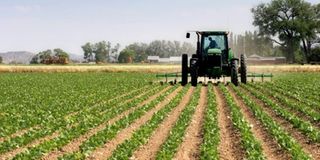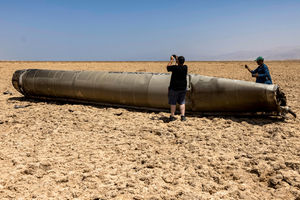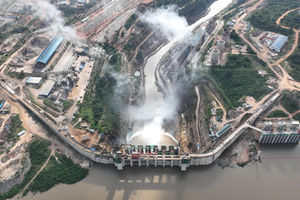AGRA commends Tanzania agriculture, calls for upping the game

Iringa. Alliance for Green Revolution (AGRA) has commended Tanzania for taking a step forward in the development of agriculture sector which places it ahead of some of its peers across the continent.
To move further up, AGRA president Dr Agnes Kalibata said it is paramount for stakeholders to build stronger and more developmental partnerships with small scale farmers across the country in addressing emerging opportunities and challenges.
Dr Kalibata said this when an international agriculture stakeholders delegation visited the Iringa regional offices, Tanzania on July 26, 2019.
The stakeholders were from Burkina Faso, Mali, Nigeria, Ethiopia, Mozambique, and Kenya.
The president of the partnership-driven institution and smallholder farmer-centered institution posed that transitioning agriculture to be more productive calls for wide dynamic partnerships, that create great access to local, regional and international markets and ensures smallholder farmers are able to lead a sustainable quality life and improve their fortunes.
“There are systems that have worked in Iringa that we need to pick up. Other partners, including local governments as well as the larger private sector, should replicate what is working for the benefit of smallholder farmers,” she noted.
Dr Kalibata noted that for the green revolution to move forward African governments at the national and local levels must step up relations with stakeholders in the sector with interests of the smallholder farmer at the center stage.
The international delegation held a conference at the regional offices, where there was a sharing of ideas and experiences and later on visited farms and agribusinesses that are exemplary in the region.
AGRA in Tanzania has been supporting the government's efforts for sustainable agriculture through a consortium model. This is a platform that brings together all partners involved in the agricultural value chain from implementing partners, local govt, stakeholders, all the way down to farmers, which brings transparency in linkages to different services and products.
She noted the national government plays a big role in enhancing the success and sustainability of such projects while the local governments help to reduce duplication of the same projects by other stakeholders.
“Our work is to facilitate but let the local government take lead and adapt it so that there can be sustainability even when the project ends. They have the mandate and ability to reach for much more than we can,” she noted.
While welcoming the delegates, acting Iringa Regional Administrative Sectary, Mr Wilfred Myuyu noted that Ihemi-Ludewa Consortium with support from AGRA was doing well in supporting the agriculture sector for the benefit of smallholder farmers.
“Despite persistent challenges facing the agricultural sector. I’m proud to inform you that the AGRA Ihemi-Ludewa project has contributed a lot in addressing most challenges related to productivity, post-harvest management and access to inputs and output markets, not only to Iringa but all the way to Njombe and Ruvuma regions," he said.
He said n the current 2018/19 marketing year, they estimate to produce 1,346,393 tonnes of maize, 151,235 tonnes of beans and 104,867 tonnes of paddy, to name a few.
Prof Nuhu Hatibu - AGRA Head for Tanzania, Rwanda, and Uganda said the institution drive in Tanzania was to work closely with the government for industrial development as per nation goals and vision to reach middle-income status.
“We want to see smallscale farmers produce and continue to produce raw materials for industries,” he said.
The delegation, led by Agra President is expected to meet the minister of Agriculture, Hon Japhet Hasunga in Dodoma on Monday.




